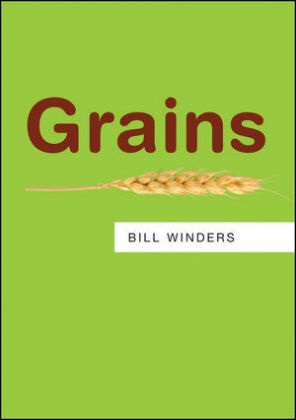Ulteriori informazioni
Grains - particularly maize, rice, and wheat - are the central component of most people's diets, but we rarely stop to think about the wider role they play in national and international policy-making, as well as global issues like food security, biotechnology, and even climate change.
But why are grains so important and ubiquitous? What political conflicts and economic processes underlie this dominance? Who controls the world's supply of grains and with what outcomes? In this timely book, Bill Winders unravels the complex story of feed and food grains in the global economy. Highlighting the importance of corporate control and divisions between grains - such as who grows them, and who consumes them - he shows how grains do not represent a unitary political and economic force. Whilst the differences between them may seem small, they can lead to competing economic interests and policy preferences with serious and, on occasions, violent geopolitical consequences.
This richly detailed and authoritative guide will be of interest to students across the social sciences, as well as anyone interested in current affairs.
Sommario
Acknowledgments 1 Grains for Food, Grains for Feed
Differences in Grains
How Differences in Grains Matter
The Geopolitics of Grains
Notes
2 Grains and the US Food Regime
The US Food Regime and its Origins
The Spread of the US Food Regime
The Effects of the US Food Regime
Notes
3 The Search for New Markets
After the US Food Regime
The Search for New Markets and Economic Conflict in Agriculture
Notes
4 Feed Grains, Food Grains, and World Hunger
World Hunger and Food Security
Hunger and the Geopolitics of Grains in History
World Hunger and the Recent Geopolitics of Grains: The Food Crisis of 2008
Food Security and the Geopolitics of Grains
The Geopolitics of Grains and Addressing World Hunger
Notes
5 Genetically Engineered Grains
What are Genetically Engineered Seeds and Foods?
Adoption and Acceptance of Genetically Engineered Grains
Resistance to GE Grains
Genetically Engineered Grains in the World Economy
Notes
6 Seeds of Change
Expropriation of Land, Land Reform, and the Geopolitics of Grains
The Geopolitics of Grains: Looking Backward, Looking Forward
Notes
Selected Readings
Index
Info autore
Bill Winders is an Associate Professor of Sociology in the School of History and Sociology at the Georgia Institute of Technology.
Riassunto
Grains - particularly maize, rice, and wheat - are the central component of most people s diets, but we rarely stop to think about the wider role they play in national and international policy-making, as well as global issues like food security, biotechnology, and even climate change.
Relazione
"Grains explores the foundational role that maize, wheat, and rice have played in the construction of global food regimes. Taking a deep dive into the political economy of food, Bill Winders combines trenchant analyses with a clear and engaging narrative about the three crops that influence everything we eat."
Eric Holt-Giménez, Food First, Institute for Food & Development Policy
"Banana wars, the Irish potato famine, food riots, climate change and the price of beer, anti-GM protests, food imperialism, and hegemonic rule are all integral features of food regimes. From production to consumption, Winders unearths the contribution of politics, economics, and geopolitics to the global food regimes of rice, maize, and wheat."
Kathleen C Schwartzman, University of Arizona

